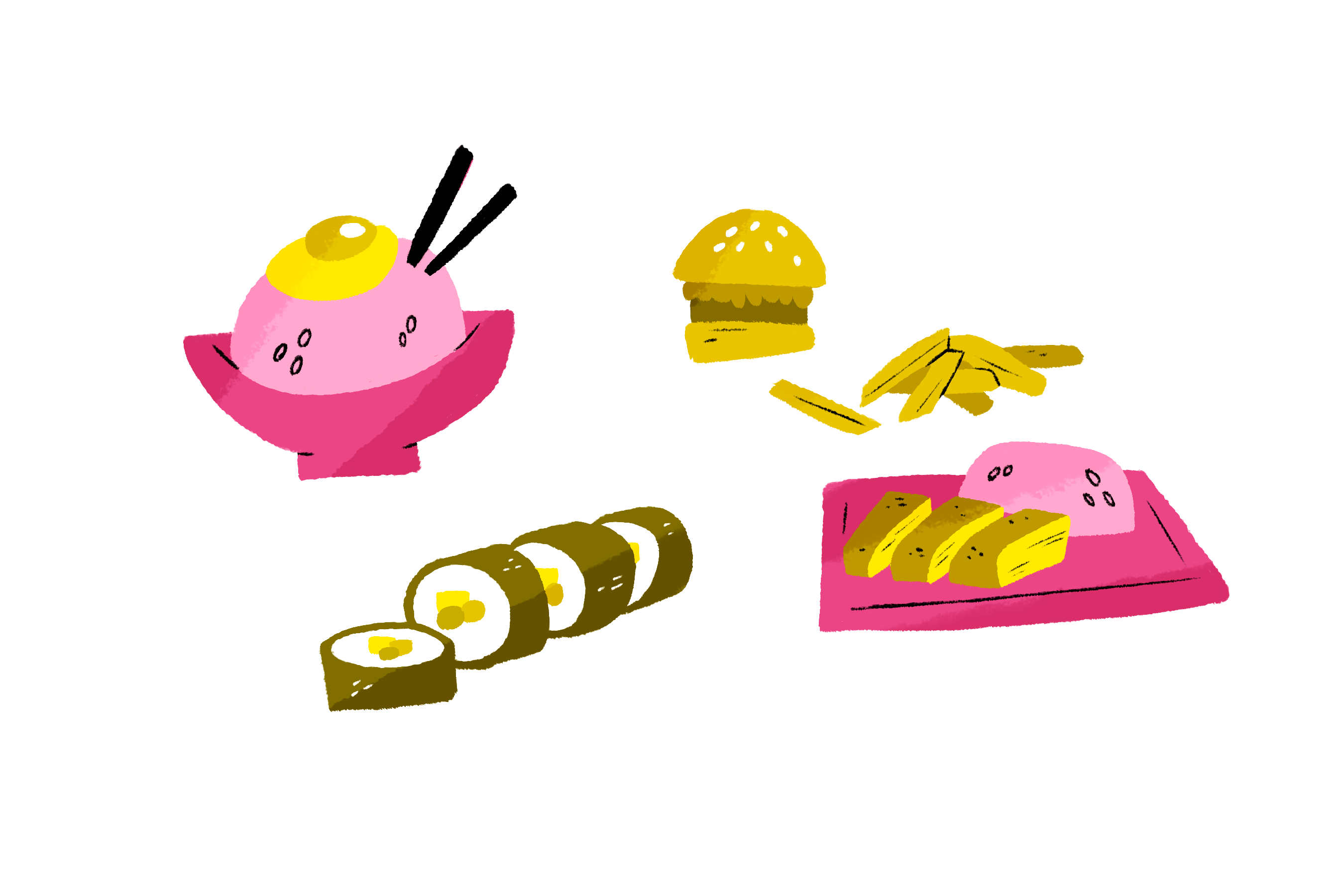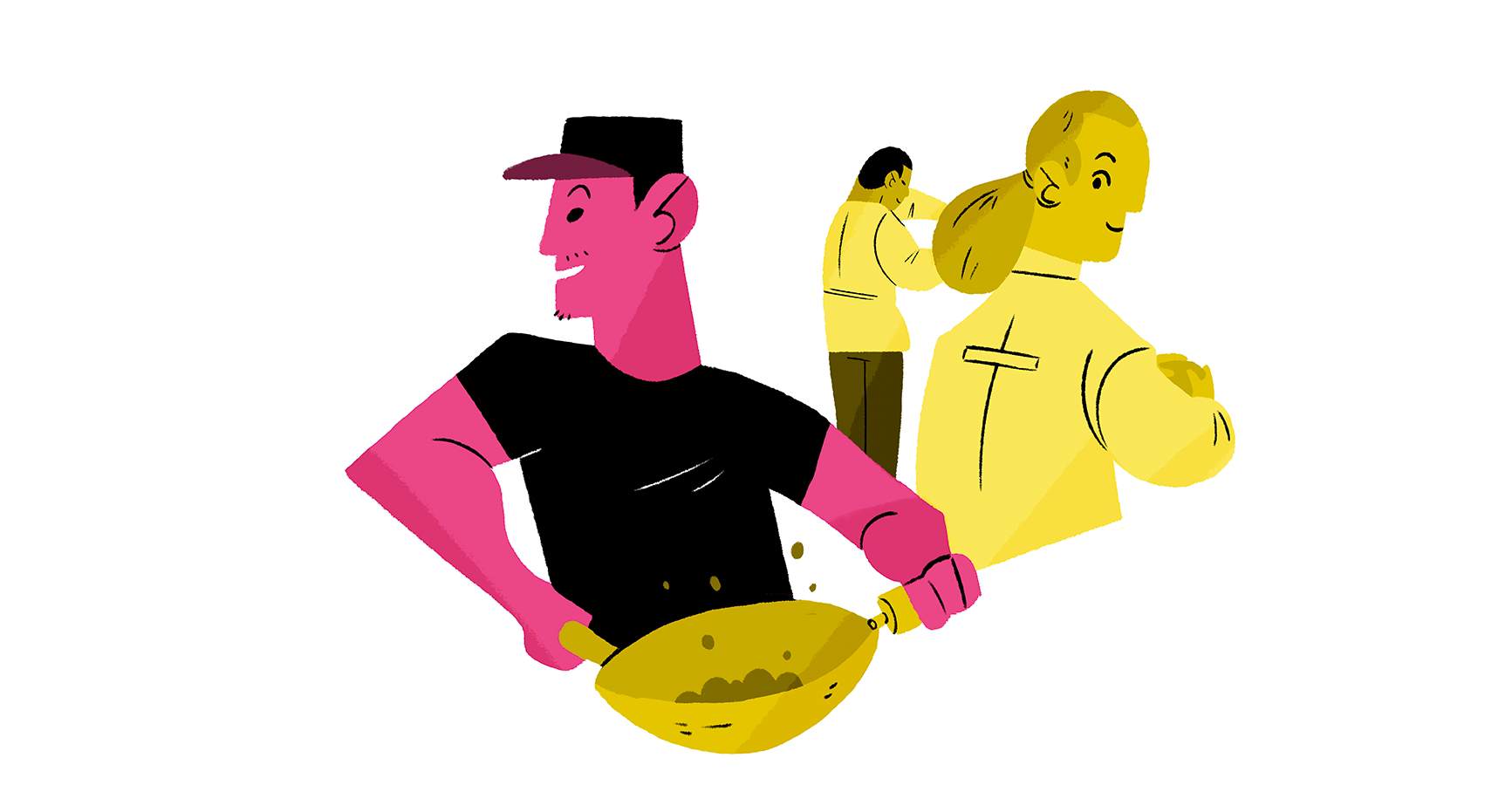
Interview By Nancy Rosenbaum.
Introduction by Morgan Mercer.
Months before Thomas Kim stepped up behind the sushi counter and started cutting fish at a restaurant in California, he was the dishwasher. He was the janitor. He was the apprentice.
Thomas now stands at the helm of popular Minneapolis restaurant, The Rabbit Hole, but he got his start through a traditional apprenticeship under Japanese chef, Jin Suzuki. With Jin, Thomas had to work his way up — from mopping the floors and washing dishes, to cooking. Now after opening two wildly successful spots in the Midtown Global Market — The Left Handed Cook and The Rabbit Hole — the Minneapolis transplant reflects on his time in California and how his apprenticeship shaped his views on teaching the skills he’s learned to the next generation.
Pollen: What made you receptive to an apprenticeship? What made you trust this person and stay with that kind of training for a year?
Thomas Kim: I worked with Jin for a little over a year. For me it was because I knew so little. I was still so early in my career that I didn’t know any better. I didn’t realize that you could just go to culinary school, or that you could just go to whatever job and say you want to be a prep cook instead of a dishwasher.
It never occurred to me to do it any other way, and thankfully it didn’t. I think he noticed something in me.
I understood the amount of attention he was giving me, and placed value upon the information and advice he was giving me. I think because of that relationship, it worked. In any other circumstance it wouldn’t. The gravity of that meaning and the interest he took in my reception to it, I think that’s why I hold it in such high esteem, because it could have went any number of ways and I could be a completely different person now. It’s a pretty awesome reflection.
P: How do you try to carry that forward in terms of how you approach training and mentoring people you work with now?
TK: I think the biggest issues I have now as a chef and business owner is that the mentality has changed. I don’t think there’s any question as to the generational shift that has occurred. There were the baby boomers, and the baby boomers to Generation X. There was some friction as the generations changed, but I think overall a lot of the mentality maintained. Generation X had the mentality of, “Oh, everything sucks. We know why and we’re going to fix it, but everything sucks anyways.” The movie “Reality Bites” is a pretty prime example of that — being apathetic, but then once you grew up realizing that you had to become a cog in the wheel to make sure everything kept going forward. But I think there’s been a shift from the mentality of Generation X into Generation Y, or the millennials. I think that the millennials have a completely different aspect. I think I can appreciate what they’re trying to do and the mindset they have because I think that they’re like: “We’re prepared to let everything fall apart and just rebuild everything from scratch,” which is awesome. The problem is I’m still a part of the old world; I’m a part of the structure that could fall apart.
Trying to mentor people with that mentality, it’s a completely different beast.
I realized you can’t yell at them; you can’t put them up against a hard rock and expect them to understand what you’re trying to do. You have to tell them exactly what you’re doing. “Hey, listen. You need to chip away at this.” One of the mantras of my chef was he would tell me, “I’m not going to show you anything. You need to steal everything from me.”
P: You need to observe me.
TK: Exactly. I’m not just going to hand it to you on a plate. You need to see why I’m doing it. You need to understand why I’m doing it, because that’s the only way you’ll be able to absorb it and make it your own. Whereas I think now the mentality is that you have to kind of spoon-feed it to people because there’s a reluctance in accepting things they don’t understand. Because of the two different mentalities, it was a bit rocky for me.
P: Can you give me an example of what you’re talking about?
TK: I think a lot of the old school chefs would understand: If you came onto the line and you’re chef came onto the line and you were doing something that wasn’t right, he wouldn’t necessarily say, “Hey, listen. I don’t want you to do it like this. You’re doing it wrong.” He would just take my cutting board and everything I’ve prepared, and throw it in the trash.
P: He was showing you with his actions.
TK: Right. He wouldn’t scream at me; but he would just take it, throw it in the trash, and walk away.
P: But you didn’t necessarily know what you had done wrong?
TK: You could take that any number of ways. You could get angry and quit, or you could try to backtrack and figure out what you had done wrong. Basically it gave you problem solving skills. Or some people, they’ll get deflated by that. They’ll take on this defeated mentality and be like, “Forget it. I’m never going to be good enough.” Whereas for the Japanese people, the culture itself is they do that to make you stronger; it’s because they care.
My chef would take things, throw them in the trash, and then walk away.
I’d redo them, and for me I understood at that time, “Man, he threw away like $40 of product just to prove a point to me.” That resonated with me. I understood what had just happened, and so I tried really hard not to screw it up again a second time. Whereas I think if you were to do that now, people probably wouldn’t understand that. They’d either get really mad at you, or they would just quit. On top of that, you would lose the product you just threw away on a lesson you were hoping to be valuable. That would be a prime example in the difference in teaching styles. For me it has been learning to be a new teacher, a different teacher.
P: Because the way you were mentored won’t work for the younger generation?
TK: Absolutely. It’s not to say that one is right and one is wrong. It’s just completely different. Learning that has been an interesting new role for me — figuring out how to mentor to people who don’t necessarily receive things the way I would have normally done it.
***
The Twin Cities has experienced a burst in creativity and opportunity in the local restaurant scene. As the fledgling group of talent begins to rise through the ranks, cooks and chefs in the industry are charged with inspiring and educating the next generation. Now it’s Thomas’ turn. Just as Jin took an active role in shaping the head chef at The Rabbit Hole, now Thomas will return the favor and begin the cycle again.
Illustrations by John Willinski



